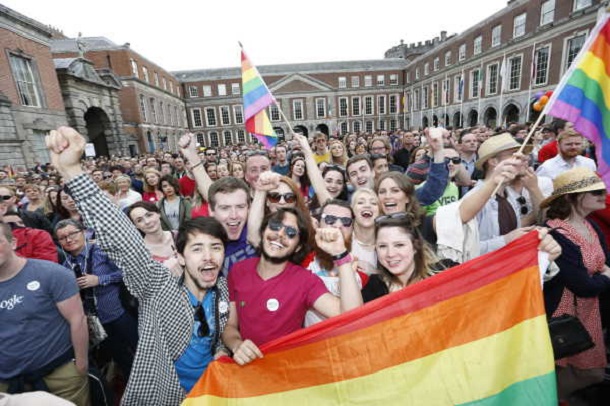The extent of anger at austerity in Britain ā and desire for an alternative to the pro-corporate politics of Britain's major parties ā is being exposed by the scale of enthusiasm and support for the campaign of veteran socialist Jeremy Corbyn for leadership of the Labour Party.
Britain
British politics is being shaken up by the shock rise of veteran socialist Jeremy Corbyn to take the lead in the British Labour Party leadership contest, running on a platform against austerity and for pro-people measures such as renationalising privatised industries. The ballot for Labour leader closes in September.
Private polling shows veteran left-wing Labour MP Jeremy Corbyn, who takes a strong stand against austerity and has a history of backing supporting popular movements, ahead in the first round of voting, the on July 15.
The New Statesman said the success of Corbyn's campaign surprised observers. Corbyn collected 40 nominations from local parties, just eight less than the bookmakers' favourite, Andy Burnham.
The British Conservative Party government introduced new austerity measures on July 8, which include slashing millions of pounds in social spending, increasing the military budget and cutting corporate taxes.
Chancellor George Osborne announced the new budget to parliament, which includes some 12 billion pounds in social spending cuts over three years.
 Photo: Stopwar.org.uk.
Anti-war campaigners challenged British Defence Secretary Michael Fallon on July 2 after his call for more air strikes in Syria, warning that the action could fuel Islamic State recruitment.
When the PM obtained Commons approval for the bombing of militant positions last year, he made it clear that this was limited to Iraq.
Photo: Stopwar.org.uk.
Anti-war campaigners challenged British Defence Secretary Michael Fallon on July 2 after his call for more air strikes in Syria, warning that the action could fuel Islamic State recruitment.
When the PM obtained Commons approval for the bombing of militant positions last year, he made it clear that this was limited to Iraq.
 Hundreds of thousands march in London on June 20
Hundreds of thousands march in London on June 20More than 200,000 people marched through central London on June 20 as people came from across the country to show their anger and opposition to further spending cuts. The demonstration involved many young people coming out to protest against the newly elected Conservative Party government, marching alongside seasoned activists.
Julian Assange,ā ā¬founder and editor,ā ā¬of WikiLeaks had been a refugee in the Ecuadorianā ā¬Embassy in London for three years as of Juneā ā¬19.
The key issue in his extraordinary incarceration is justice.ā ā¬He has been charged with no crime.ā ā¬The first Swedish prosecutor dismissed the misconduct allegations regarding two women in Stockholm inā ā¬2010.ā ā¬The second Swedish prosecutor's actions were and are demonstrably political.
Until recently,ā ā¬she refused to come to London to interview Assangeā ā¬-ā ā¬then she said she was coming.ā ā¬Then she cancelled her appointment.ā
British police and soldiers colluded in state terror with loyalist gunmen and bombers in the murders of over 120 Catholic civilians in the Northern Ireland conflict. They then covered up their misdeeds.
That is the unchallenged finding of 15 years of research by The Pat Finucane Centre and Justice for the Forgotten in Ireland, now chronicled in the acclaimed book Lethal Allies: British Collusion in Ireland whose author, Anne Cadwallader, is visiting Australia this month (details below).
 British submariner William McNeilly went on the run after he released confidential information about Britain's Trident nuclear weapons program on May 12. He was detained by police after returning to Scotland on May 18.
McNeilly had been in hiding after he wrote and released an 18 page document highlighting a ādisaster waiting to happenā. The British defence ministry said he was being held in a secure military base.
British submariner William McNeilly went on the run after he released confidential information about Britain's Trident nuclear weapons program on May 12. He was detained by police after returning to Scotland on May 18.
McNeilly had been in hiding after he wrote and released an 18 page document highlighting a ādisaster waiting to happenā. The British defence ministry said he was being held in a secure military base.
The BBCās Panorama program on May 28 made explosive revelations about British state collusion with paramilitaries in the north of Ireland occupied by Britain. It implicates British authorities in the murder of hundreds of people, and in subsequent cover-ups.
 CR gas was used to quell rioting in Long Kesh jail in October, 1974.
Papers from 1976 obtained by the Observer under freedom of information laws show that the use of āCRā or Dibenzoxazepine ā a skin irritant 10 times more powerful than other tear gases ā was permitted from 1973 to be used on Irish republican prisoners.
CR gas was used to quell rioting in Long Kesh jail in October, 1974.
Papers from 1976 obtained by the Observer under freedom of information laws show that the use of āCRā or Dibenzoxazepine ā a skin irritant 10 times more powerful than other tear gases ā was permitted from 1973 to be used on Irish republican prisoners.
 Celebrating referendum victory in Dublin. Photo: An Phoblacht.
As most of Ireland celebrates marriage equality ā passed overwhelmingly in a May 22 referendum - the six counties in its north carved off and still claimed by Britain remain excluded.
Celebrating referendum victory in Dublin. Photo: An Phoblacht.
As most of Ireland celebrates marriage equality ā passed overwhelmingly in a May 22 referendum - the six counties in its north carved off and still claimed by Britain remain excluded.
- Previous page
- Page 28
- Next page






